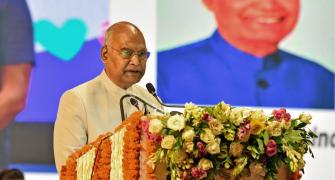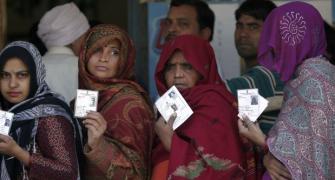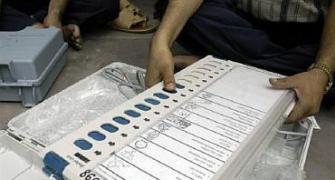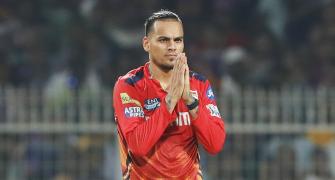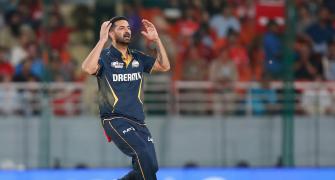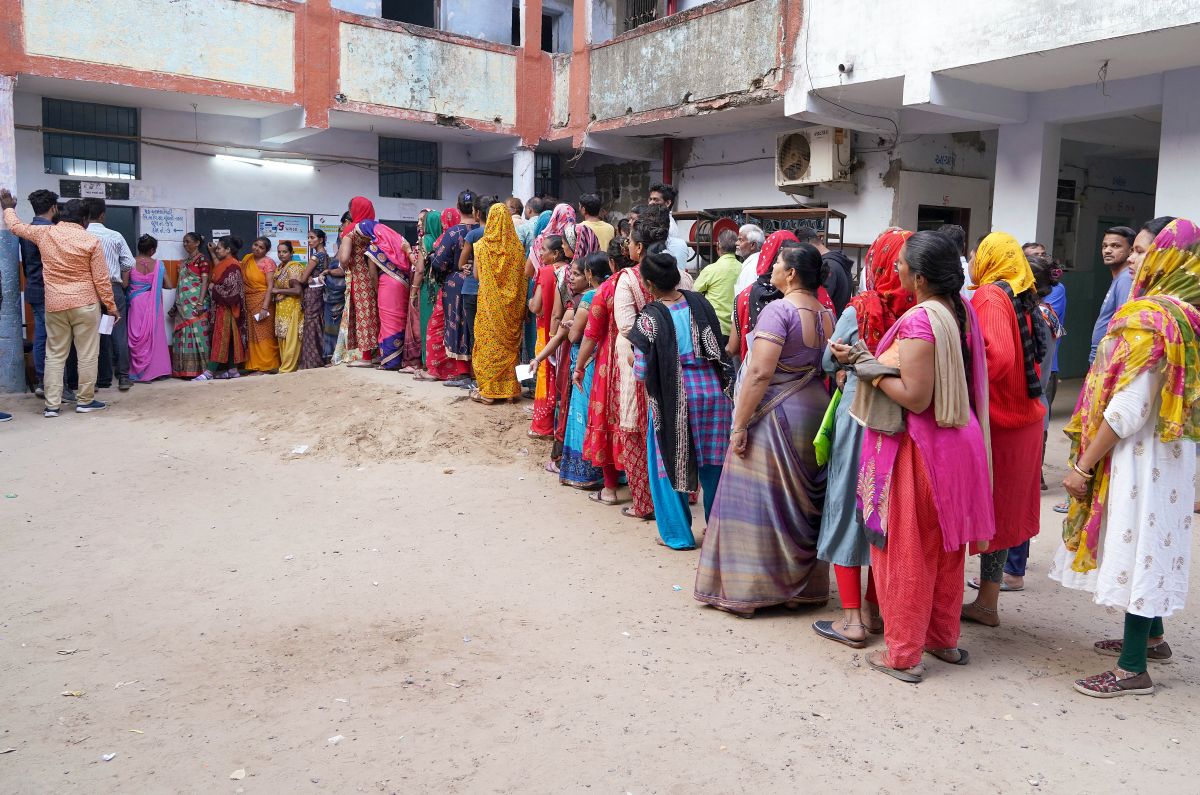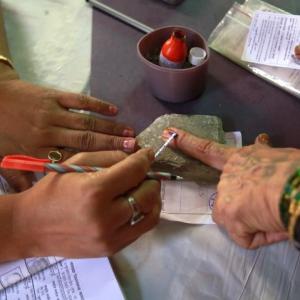'There was a 77% chance that electorates in India voted for the same party for both the state and Centre when elections were held simultaneously.'
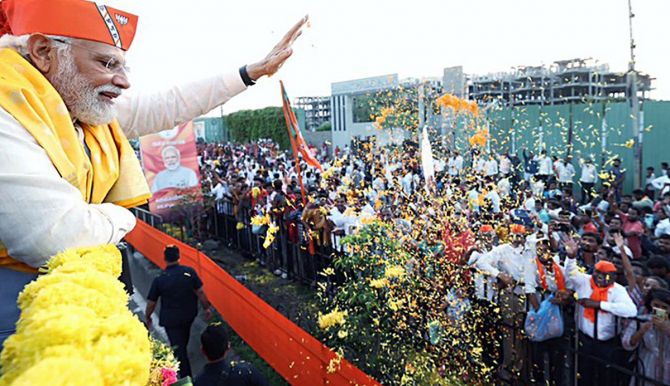
At least since 2015, the Narendra D Modi government has favoured 'simultaneous; assembly and Lok Sabha polls, or 'one nation, one election', arguing that it would help the exchequer curtail election expenditure and expedite decision-making.
The Opposition, especially some regional parties and even the Congress, has opposed the government's proposal, calling it against the federal principle.
Recent studies and electoral data reveal why the Bharatiya Janata Party-led government is pushing for one nation, one election.
The 2017 NITI Aayog discussion paper on 'simultaneous elections' by Bibek Debroy and Kishore Desai proposed holding at least 14 assembly polls with the 2019 Lok Sabha polls, citing the significant savings to the exchequer. But it recognised the criticism that simultaneous assembly and Lok Sabha polls could lead to a similar voting pattern.
A 2015 study by IDFC Institute, a think-tank, found that from 1999 to 2014, there was a 77 per cent chance that electorates in India voted for the same party for both the state and Centre when elections were held simultaneously.
Still, the figure dropped to 61 per cent when elections were held even six months apart.
When this cycle was disrupted further, only 48 per cent of the constituencies produced the same party winner.
According to an analysis by Sanjay Kumar and Jagdeep Chhokar, which Debroy's paper discussed, from the 1989 Lok Sabha elections to 2014, there were 31 instances of simultaneous polls for assemblies and Lok Sabha. In 24 elections, the major political parties polled almost a similar proportion of votes for the assembly and the Lok Sabha, while only in seven instances was the voters' choice somewhat different.
Debroy and Desai argued that the cost to the government for conducting Lok Sabha elections 'has seen a significant jump'. They recognised that 'one election' would require constitutional amendments but said frequent elections disrupted governance and development work and forced governments to take populist measures.
The two said that compared to the cost incurred for conducting the 2009 Lok Sabha elections at about Rs 1,115 crore (Rs 11.15 billion), the same for 2014 tripled to about Rs 3,870 crore (Rs 38.70 billion). In addition, the 2015 Bihar assembly polls cost Rs 300 crore (Rs 3 billion) and Gujarat's in 2017 Rs 240 crore (Rs 2.4 billion), when these and others could have been held alongside the Lok Sabha elections.
'Clearly, frequent elections take away opportunities to optimise such costs and lead to a significant yearly outflow of public money every year,' it said. In contrast, it said the Election Commission estimates Rs 4,500 crore (Rs 45 billion) in case elections are held simultaneously, the paper stated.
There is a reason why the Congress and its allies are wary of the proposal. In December 2018, the Congress won the assembly polls in Madhya Pradesh, Chhattisgarh, and Rajasthan. It beat the incumbent BJP in terms of the number of seats won and vote share secured on the back of local issues, including agrarian distress.
Five months later, in the 2019 Lok Sabha polls, the BJP secured 59 per cent of votes in Rajasthan, improving nearly 20 per cent from its assembly election showing. The results in MP and Chhattisgarh were similar.
However, by October, when Maharashtra, Jharkhand, and Haryana held their assembly polls -- three states that the BJP had swept in the May 2019 Lok Sabha polls -- the situation it faced had changed. It lost its government in Jharkhand, while Maharashtra and Jharkhand threw up fractured verdicts.
In 2020, the BJP lost comprehensively in the Delhi assembly polls, where it had won all seven Lok Sabha seats in May 2019, and struggled to repeat its Lok Sabha performance in the Bihar assembly polls.


